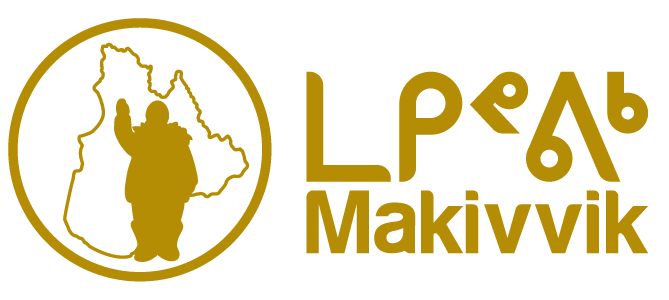This fall Nunavik Research Centre Wildlife Technician Alix Gordon announced his retirement as of October 6, 2021. After nearly four decades of working for Makivvik’s Department of Environment, Wildlife and Research, he sent a heartfelt email to all staff thanking his colleagues and saying it was with a mixture of sadness and happiness that he was leaving after 38 years.
Alix’s commitment to his job is commendable and Makivvik President Pita Aatami characterized the work he did for Nunavimmiut as invaluable. In a phone interview, Pita said he thanks Alix for his dedication on behalf of the corporation, and wishes him well in his retirement.
Lorraine Brooke was head of Makivvik’s Research Department from its creation in the mid 1970s to 1991 and hired Alix all those years ago. “He was always a very steady and conscientious employee who eagerly took up the challenges of learning scientific and research methods while educating and sensitizing his non-Inuit colleagues on how to work respectfully and learn from Inuit,” she said.
What follows is a personal reflection written by Réjean Dumas. Réjean started working with Makivvik as a student in 1980 and became a permanent employee in 1981, working as a bioloigist until 1990. He spent most of that time living in Kuujjuaq and working alongside Alix Gordon.

Alix Gordon’s story at Makivvik begins back to 1983, which were still the early days of the Nunavik Research Centre when it was hosted in the old Taqralik office. The centre’s activities then revolved around the Kuujjuaq Fish Study, the Eider projects and Beluga studies. On a typical winter day, Alix and Moses1 would be ageing salmon from their scales under a twin-headed microscope while arguing with Réjean about a certain check on a salmon scale: winter or spawning mark was the question! Peter, Etua and Douglas were pounding eider data or preparing a community presentation. Allen would come in late in the afternoon after school to work a couple of hours on his brook trout project.

Team spirit, passion for wildlife, and humor were omnipresent. The then-called lab was one room with one big hand-crafted worktable. Around that table, all discussions were allowed: yesterday’s white out, tomorrow’s tide, the eider down quantity to make a quality vest…or the next prank on a designated victim. I remember that time when one of us was looking for his snowmobile which had been moved onto the roof of the lab: those were the days when snow would cover the entire back of the building. There was no limit to that team’s imagination; Alix’s knowledge, curiosity, capacity to analyze, and gentleness was a great part of it.



The fall of 1984 was marked by a major event that gathered journalists from around the world: the drowning of 12,000 caribou in the flooded Caniapiscau River. Alix was a key member of the team which sampled 250 of those caribou to assess their physical health. Half the salmon sample size (250) was examined annually and aged to characterize the harvest from the Kuujjuaq River and estuary. Alex was responsible for field operations, which involved several Kuujjuaq students. Little did we know that these students were emerging community leaders that would go on to occupy strategic positions in the Nunavik political landscape. Clearly, Alix has influenced and contributed to the path of several great Inuit leaders by his thinking and his wisdom.
1 The people mentioned in this paragraph by first name are Moses Koneak, Réjean Dumas, Peter May, Etua Tukkiapik, Douglas Nakashima, and Allen Gordon.




